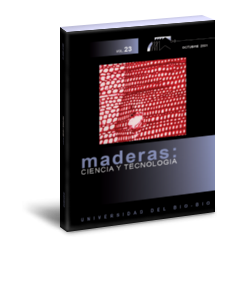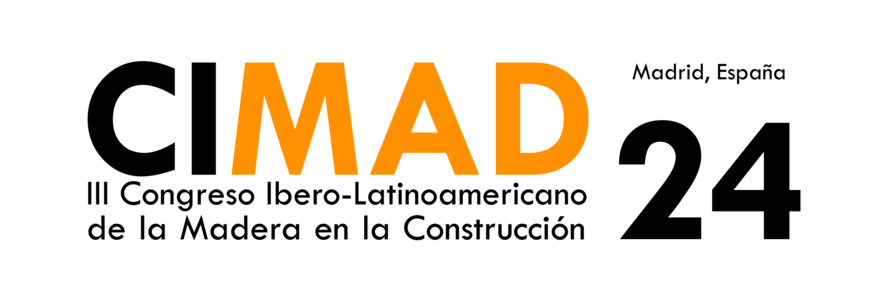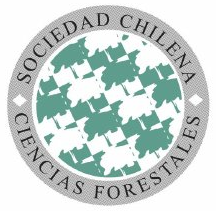Flooring characteristics of thermo-mechanical densified wood from three hardwood tropical species in costa rica
Keywords:
Tropical species, low density, spring-back, flooring propertiesAbstract
Densification is one method used to modify low-density woods to make them achieve the hardness required for flooring application. The purpose of this study was to investigate the effect of thermo-mechanical densification with pre-heating in wood of Alnus acuminata, Vochysia ferruginea and Vochysia guatemalensis from, seeking to stabilize and reduce spring-back of the densified wood and evaluate its performance in flooring applications. The results showed that the wood of the three species turned dark. This is because brightness diminished and yellowness and redness increased. Weight loss due to pre-heating was statistically higher in V. ferruginea and V. guatemalensis. The final density and spring-back were statistically similar in the three species. The percentage of densification of A. acuminata and V. guatemalensis were statistically higher than for V. ferruginea and the degree of compression was statistically higher in V. guatemalensis. As for flooring evaluation, the percentage of densification, temperature and time of pre-heating affected the behavior of densified wood flooring. The low percentage of densification and high weight loss in the pre-heating stage caused greater values of wear, wear index, residual deformation, residual indentation for the falling ball indentation test, and more damages in the surface indentation test in wood of V. ferruginea.
Downloads
References
ASTM. 2013. D905-08: Standard test method for strength properties of adhesive bonds in shear by compression loading. ASTM International, West Conshohocken, PA, USA. https://doi.org/10.1520/D0905-08R13
ASTM. 2014. D4060-14: Standard test method for abrasion resistance of organic coatings by the taber abraser. ASTM International, West Conshohocken, PA, USA. https://doi.org/10.1520/D4060-19
ASTM. 2016. D4442-16: Standard test methods for direct moisture content measurement of wood and wood-base materials. ASTM International, West Conshohocken, PA, USA. https://doi.org/0.1520/D4442-16.
ASTM. 2017. D2394-17: Standard test methods for simulated service testing of wood and wood-based finish flooring. ASTM International, West Conshohocken, PA, USA. https://doi.org/10.1520/D2394-17
Blanchet, P.; Beauregard, R.L.; Cloutier, A.; Gendron, G.; Lefebvre; M. 2003. Evaluation of various engineered wood flooring constructions wood cladding in non residential building : finding ‘by’ and ‘for’ the design view project. Forest Prod J 53(5): 30–35.
Blanco-Flórez, J.; Silva, J.R.M. da; Braga, P.P. de C.; Lima, J.T.; Trugilho, P.F. 2015. Simulação em serviço de pisos de madeira jovem de Tectona grandis. Matéria (Rio de Janeiro) 20(4): 1048–1060. https://doi.org/10.1590/S1517-707620150004.0107
Candelier, K.; Thevenon, M.-F.; Petrissans, A.; Dumarcay, S.; Gerardin, P.; Petrissans, M. 2016. Control of wood thermal treatment and its effects on decay resistance: a review. Annals For Sci 73(3): 571–583. https://doi.org/10.1007/s13595-016-0541-x
Darwis; A.; Wahyudi, I.; Dwianto, W.; Cahyono, T.D. 2017. Densified wood anatomical structure and the effect of heat treatment on the recovery of set. J Indian Acad Wood Sci 14(1): 24–31. https://doi.org/10.1007/s13196-017-0184-z
Dwianto, W.; Morooka, T.; Norimoto, M.; Kitajima, T. 1999. Stress relaxation of sugi (Cryptomeria japonica D.Don) wood in radial compression under high temperature steam. Holzforschung 53(5): 541–546. https://doi.org/10.1515/HF.1999.089
Dwianto, W.; Tanaka, F.; Inoue, M.; Norimoto, M. 1996. Crystallinity changes of wood by heat or steam treatment. Wood Res 83: 47–49. https://core.ac.uk/download/pdf/39187404.pdf
Fang, C.H.; Blanchet, P.; Cloutier, A.; Barbuta, C. 2012. Engineered wood flooring with a densified surface layer for heavy-duty use. BioRes 7(4): 5843–5854. https://doi.org/10.15376/biores.7.4.5843-5854
Feifel, S.; Stübs, O.; Seibert, K.; Hartl, J. 2015. Comparing wood–polymer composites with solid wood: the case of sustainability of terrace flooring. Eur J Wood Prod 73(6): 829–836. https://doi.org/10.1007/s00107-015-0953-6
Inoue, M.; Ogata, S.; Kawai, S.; R, Norimoto, M. 1993. Fixation of compressed wood using melamine-formaldehyde resin. Wood Fiber Sci 25(4): 404–410
Inoue, M.; Sekino, N.; Morooka, T.; Rowell, R.M.; Norimoto, M. 2008. Fixation of compressive deformation in wood by pre-steaming. J Trop For Sci 20(4): 273–281
Jalilzadehazhari, E.; Johansson, J. 2019. Material properties of wooden surfaces used in interiors and sensory stimulation. Wood Mat Sci Eng 14(4): 192–200. https://doi.org/10.1080/17480272.2019.1575901
Kutnar, A.; Kamke, F.A. 2012. Influence of temperature and steam environment on set recovery of compressive deformation of wood. Wood Sci Tech 46(5): 953–964. https://doi.org/10.1007/s00226-011-0456-5
Matsuo, M.; Yokoyama, M.; Umemura, K.; Gril, J.; Yano, K.; Kawai, S. 2010. Color changes in wood during heating: Kinetic analysis by applying a time-temperature superposition method. Appl Physics A: Mat Sci Proc 99(1): 47–52. https://doi.org/10.1007/s00339-010-5542-2
Moya, R. 2018. La producción de madera de especies nativas en plantaciones comerciales: una opción real. Ambientico 267(6): 32–36 http://www.ambientico.una.ac.cr/pdfs/art/ambientico/267_32-36.pdf
Moya, R.; Fallas, R.S.; Bonilla, P.J.; Tenorio, C. 2012. Relationship between wood color parameters measured by the CIELab system and extractive and phenol content in Acacia mangium and Vochysia guatemalensis from fast-growth plantations. Molecules 17(4): 3639–3652. https://doi.org/10.3390/molecules17043639
Moya, R.; Rodríguez-Zúñiga, A.; Vega-Baudrit, J. 2015. Effects of adding multiwall carbon nanotubes on performance of polyvinyl acetate and urea-formaldehyde adhesives in tropical timber species. J Nanomaterials 2015(ID 895650): ID 895650. https://doi.org/10.1155/2015/895650
Moya, R.; Wiemann, M.C.; Olivares, C. 2013. Identificación de especies de árboles en peligro o amenazadas de Costa Rica basada en la anatomía de la madera y fluorescencia. Rev Bio Trop 61(3): 1133–1156. https://doi.org/10.15517/rbt.v61i3.11909
Navi, P.; Heger, F. 2004. Combined densification and thermo-Hydro-mechanical processing of wood. MRS Bulletin 29(5): 332–336. https://doi.org/10.1557/mrs2004.100
Nölte, A.; Meilby, H.; Yousefpour, R. 2018. Multi-purpose forest management in the tropics: Incorporating values of carbon, biodiversity and timber in managing
Tectona grandis (teak) plantations in Costa Rica. For Ecol Manag 422: 345–357. https://doi.org/10.1016/j.foreco.2018.04.036
Nordvik, E.; Schütte, S.; Broman, N. O. 2009. People’s perceptions of the visual appearance of wood flooring: A kansei engineering approach. For Prod J 59(11): 67–74. https://doi.org/10.13073/0015-7473-59.11.67
Norimoto, M.; Ota, C.; Akitsu, H.; Yamada, T. 1993. Permanent fixation of bending deformation in wood by heat treatment. Wood Res 79: 23–33. https://core.ac.uk/download/pdf/39187454.pdf
Pelit, H.; Budakçı, M.; Sönmez, A. 2016. Densification and heat treatment. BioRes 11(2): 3215–3229. https://bioresources.cnr.ncsu.edu/resources/the-effects-of-densification-and-heat-post-treatment-on-hardness-and-morphological-properties-of-wood-materials/
Perçin, O.; Sofuoglu, S. D.; Uzun, O. 2015. Effects of boron impregnation and heat treatment on some mechanical properties of oak (Quercus petraea Liebl.) wood. BioRes 10(3): 3963–3978. https://doi.org/10.15376/biores.10.3.3963-3978
Pohleven, J.; Burnard, M.; Kutnar, A. 2019. Volatile organic compounds emitted from untreated and thermally modified wood- A review. Wood Fiber Sci 51(3): 231–254. https://doi.org/10.22382/wfs-2019-023
Sadatnezhad, S.H.; Khazaeian, A.; Sandberg, D.; Tabarsa, T. 2017. Continuous surface densification of wood: A new concept for large-scale industrial processing. BioRes 12(2): 3122–3132. https://doi.org/10.15376/biores.12.2.3122-3132
Salca, E.A.; Kobori, H.; Inagaki; T.; Kojima, Y.; Suzuki, S. 2016. Effect of heat treatment on colour changes of black alder and beech veneers. J Wood Sci 62(4): 297–304. https://doi.org/10.1007/s10086-016-1558-3
Sandberg, D.; Haller, P.; Navi, P. 2013. Thermo-hydro and thermo-hydro-mechanical wood processing: An opportunity for future environmentally friendly wood products. Wood Mat Sci Eng 8(1): 64–88. https://doi.org/10.1080/17480272.2012.751935
Serrano, R.; Moya, R. 2011. Procesamiento, uso y mercado de la madera en Costa Rica: aspectos históricos y análisis crítico. Rev For Mesoamericana Kurú 8(21): 1–12. https://revistas.tec.ac.cr/index.php/kuru/article/view/370)
Tenorio, C.; Moya, R. 2020. Effect of thermo-hydro-mechanical densification in the wood properties of three short-rotation forest species in Costa Rica. BioRes 15(4):8065-8064. https://doi.org/10.15376/biores.15.4.8065-8084
Tenorio, C.; Moya, R. 2021. Development of a thermo-hydro-mechanical device for wood densification adaptable to universal testing machines and its evaluation in a tropical species. J Test Eval 49(4). https://doi.org/10.1520/JTE20180760
Tenorio, C.; Moya, R.; Salas, C.; Berrocal, A. 2016. Evaluation of wood properties from six native species of forest plantations in Costa Rica. Bosque 37(1): 71–84. https://doi.org/10.4067/S0717-92002016000100008
Tenorio, C.; Moya, R.; Tommasiello, M. 2020. Density profile and micromorphology variation of densified wood from three fast growth hardwood species in Costa Rica. Wood Fiber Sci 52(3):266-279. https://doi.org/10.22382/wfs-2020-025
United States. Office of Inter-American Affairs. 1943. The Forests of Costa Rica: A General Report on the Forest Resources of Costa Rica- C. A. Merker; Madison, WI. Costa Rica. https://books.google.co.cr/books/about/The_Forests_of_Costa_Rica.html?id=icX0vQAACAAJ&redir_esc=y)
Zhou, Q.; Chen, C.; Tu, D.; Zhu, Z.; Li, K. 2019. Surface densification of poplar solid wood: Effects of the process parameters on the density profile and hardness. BioRes 14(2): 4814–4831. https://doi.org/10.15376/biores.14.2.4814-4831
Downloads
Published
How to Cite
Issue
Section
License

This work is licensed under a Creative Commons Attribution 4.0 International License.
Los autores/as conservarán sus derechos de autor y garantizarán a la revista el derecho de primera publicación de su obra, el cuál estará simultáneamente sujeto a la Licencia de Reconocimiento de Creative Commons CC-BY que permite a terceros compartir la obra siempre que se indique su autor y su primera publicación esta revista.
































